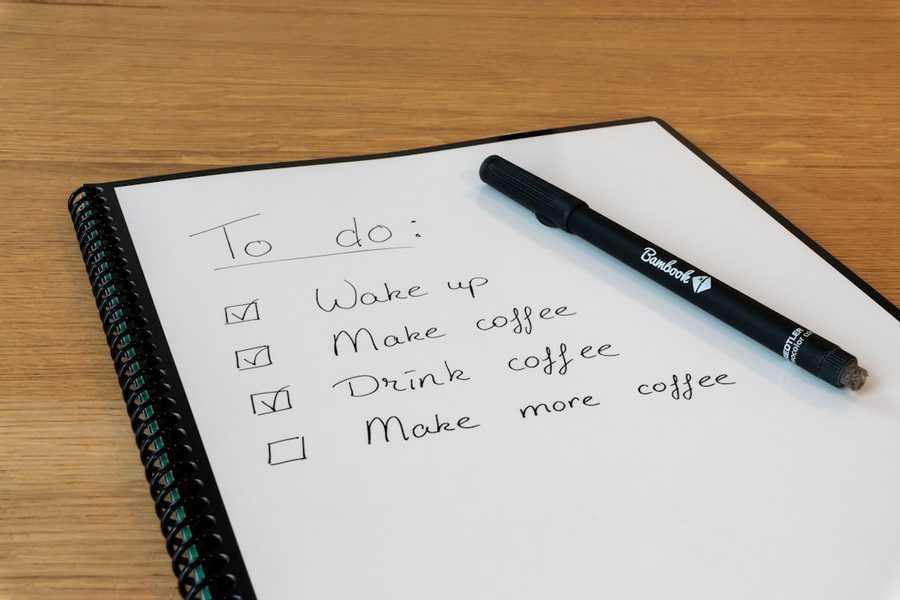Oliver Burkeman's last column: the eight secrets to a (fairly) fulfilled life
Curated from: theguardian.com
Ideas, facts & insights covering these topics:
11 ideas
·75 reads
Explore the World's Best Ideas
Join today and uncover 100+ curated journeys from 50+ topics. Unlock access to our mobile app with extensive features.
There will always be too much to do
Today more than ever, there’s no reason to assume any fit between the demands on your time, all the things you want to do, or feel you ought to do, and the amount of time available.
Thanks to capitalism, technology and human ambition, these demands keep increasing, while your capacities remain largely fixed. The attempt to “get on top of everything” is doomed.
The only viable solution is to make a shift: from a life spent trying not to neglect anything, to one spent proactively and consciously choosing what to neglect, in favour of what matters most.
7
15 reads
Choose “enlargement” over happiness
I’m indebted to the Jungian therapist James Hollis for the insight that major personal decisions should be made not by asking, “Will this make me happy?”, but “Will this choice enlarge me or diminish me?”
We’re terrible at predicting what will make us happy: the question swiftly gets bogged down in our narrow preferences for security and control.
But the enlargement question elicits a deeper, intuitive response. You tend to just know whether, say, leaving or remaining in a relationship or a job, though it might bring short-term comfort, would mean cheating yourself of growth.
6
9 reads
The capacity to tolerate minor discomfort is a superpower
It’s shocking to realise how readily we set aside even our greatest ambitions in life, merely to avoid easily tolerable levels of unpleasantness.
You already know it won’t kill you to endure the mild agitation of getting back to work on an important creative project; initiating a difficult conversation with a colleague; asking someone out; or checking your bank balance – but you can waste years in avoidance nonetheless. (This is how social media platforms flourish: by providing an instantly available, compelling place to go at the first hint of unease.)
7
5 reads
Choose Disco
It’s possible, instead, to make a game of gradually increasing your capacity for discomfort, like weight training at the gym. When you expect that an action will be accompanied by feelings of irritability, anxiety or boredom, it’s usually possible to let that feeling arise and fade, while doing the action anyway. The rewards come so quickly, in terms of what you’ll accomplish, that it soon becomes the more appealing way to live.
6
7 reads
The advice you don’t want to hear is usually the advice you need
I spent a long time fixated on becoming hyper-productive before I finally started wondering why I was staking so much of my self-worth on my productivity levels. What I needed wasn’t another exciting productivity book, but to ask more uncomfortable questions instead.
The broader point here is that it isn’t fun to confront whatever emotional experiences you’re avoiding – if it were, you wouldn’t avoid them – so the advice that could really help is likely to make you uncomfortable.
6
7 reads
It’s wrong to say we live in especially uncertain times. The future is always uncertain
OLIVER BURKEMAN
6
9 reads
One Good Question
One good question to ask is what kind of practices strike you as intolerably cheesy or self-indulgent: gratitude journals, mindfulness meditation, seeing a therapist? That might mean they are worth pursuing. (I can say from personal experience that all three are worth it.)
Oh, and be especially wary of celebrities offering advice in public forums: they probably pursued fame in an effort to fill an inner void, which tends not to work – so they are likely to be more troubled than you are.
6
5 reads
The future will never provide the reassurance you seek from it
As the ancient Greek and Roman Stoics understood, much of our suffering arises from attempting to control what is not in our control. And the main thing we try but fail to control is the future. We want to know, from our vantage point in the present, that things will be OK later on. But we never can.
It’s freeing to grasp that no amount of fretting will ever alter this truth. It’s still useful to make plans. But do that with the awareness that a plan is only ever a present-moment statement of intent, not a lasso thrown around the future to bring it under control.
6
7 reads
The solution to imposter syndrome is to see that you are one
You – unconfident, self-conscious, all-too-aware-of-your-flaws – potentially have as much to contribute to your field, or the world, as anyone else.
Humanity is divided into two: on the one hand, those who are improvising their way through life, patching solutions together and putting out fires as they go, but deluding themselves otherwise; and on the other, those doing exactly the same, except that they know it. It’s infinitely better to be the latter (although too much “assertiveness training” consists of techniques for turning yourself into the former).
6
4 reads
Selflessness is overrated
If you’re prone to thinking you should be helping more, that’s probably a sign that you could afford to direct more energy to your idiosyncratic ambitions and enthusiasms. As the Buddhist teacher Susan Piver observes, it’s radical, at least for some of us, to ask how we’d enjoy spending an hour or day of discretionary time. And the irony is that you don’t actually serve anyone else by suppressing your true passions anyway. More often than not, by doing your thing – as opposed to what you think you ought to be doing – you kindle a fire that helps keep the rest of us warm.
6
5 reads
Know when to move on.
And then, finally, there’s the one about knowing when something that’s meant a great deal to you – like writing this column – has reached its natural endpoint, and that the most creative choice would be to turn to what’s next. This is where you find me. Thank you for reading.
6
2 reads
IDEAS CURATED BY
CURATOR'S NOTE
The writer and journalist Oliver Burkeman shares a few lessons from his time writing his "This column will change your life" for the Guardian.
“
Patrick Smith's ideas are part of this journey:
Learn more about personaldevelopment with this collection
How to build a network while working remotely
How to work remotely
How to manage finances while working remotely
Related collections
Similar ideas
8 ideas
Secrets to a (fairly) fulfilled life
theguardian.com
6 ideas
2 ideas
The One Thing That Separates Great Pitches from Amateurs
dcpalter.medium.com
Read & Learn
20x Faster
without
deepstash
with
deepstash
with
deepstash
Personalized microlearning
—
100+ Learning Journeys
—
Access to 200,000+ ideas
—
Access to the mobile app
—
Unlimited idea saving
—
—
Unlimited history
—
—
Unlimited listening to ideas
—
—
Downloading & offline access
—
—
Supercharge your mind with one idea per day
Enter your email and spend 1 minute every day to learn something new.
I agree to receive email updates

